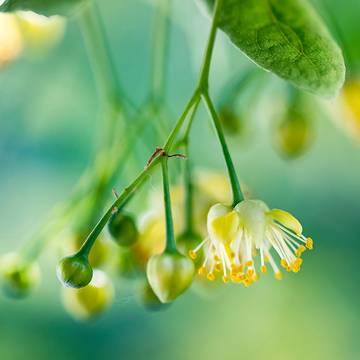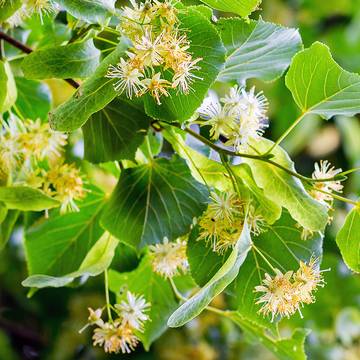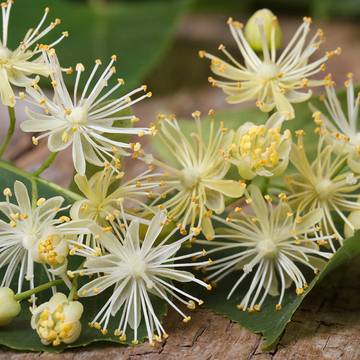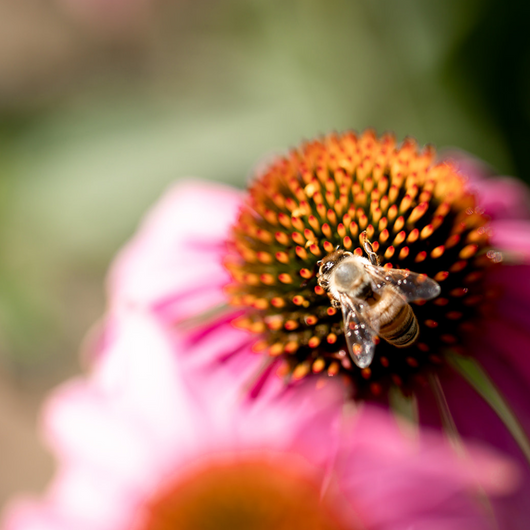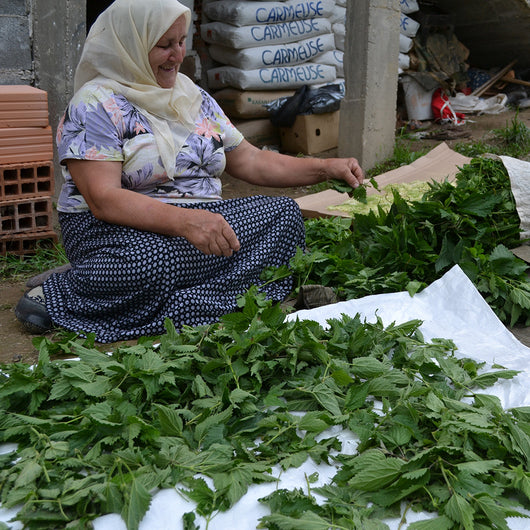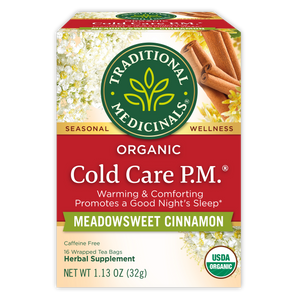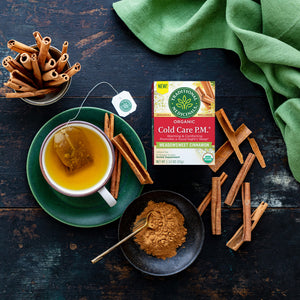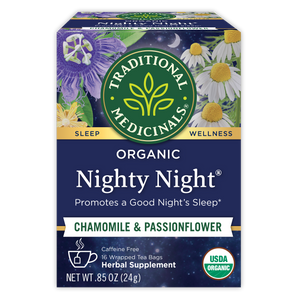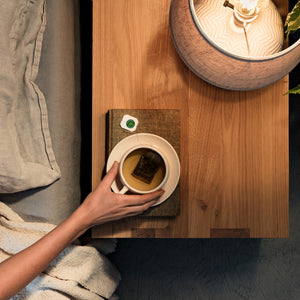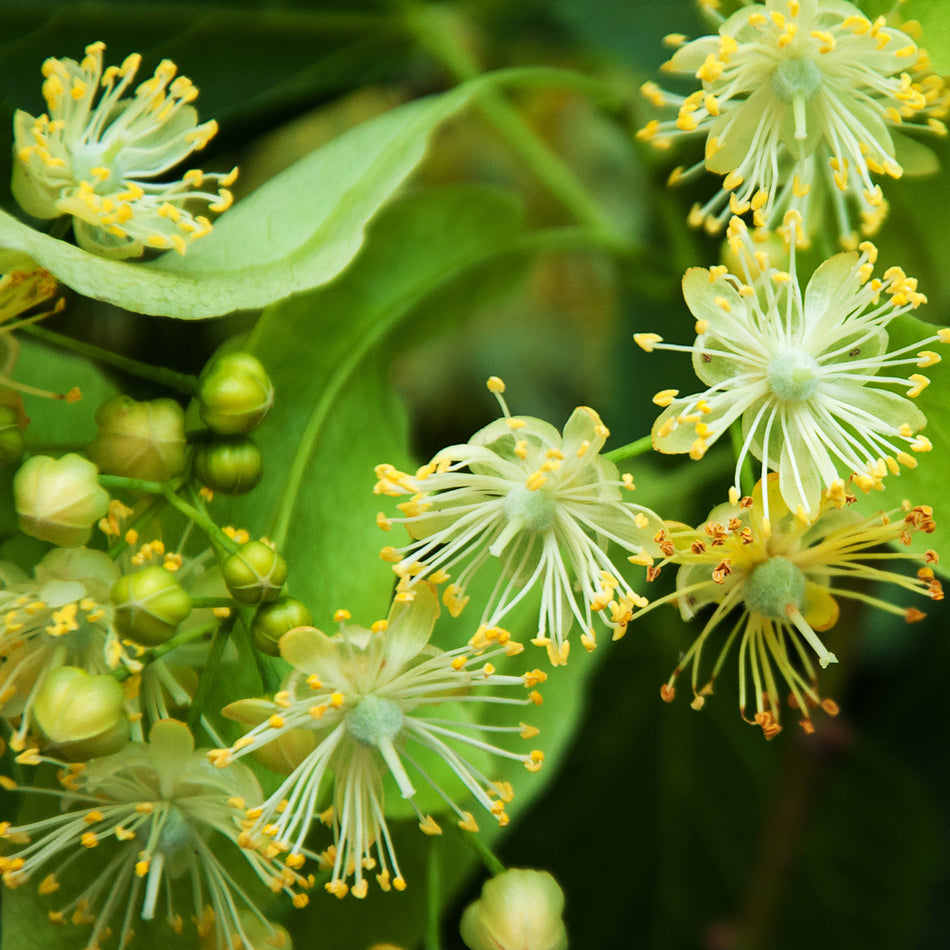
Linden
Tilia spp.Linden is a bright and refreshing herb commonly used to support and soothe the nerves, digestion, and ease seasonal woes.*
Beloved herb symbolically known for justice.
What are the benefits of Linden?
Beloved for its light and citrusy taste, linden tea and honey have been enjoyed for thousands of years. The light-yellow blooms are used for many purposes, notably to calm and soothe. Since ancient times, this plant has been used as an antispasmodic to ease digestion, stress, and bodily tension. It’s gentle enough for kids, and can be used to calm the nerves before bedtime.*
Folklore & Historical Use of Linden
Linden is a sacred tree in many cultures. German mythology connects this tree to Freyja, the goddess of fertility. It was also said that it was impossible to lie while beneath a linden tree, making it a powerful place for judicial hearings, weddings, and celebrations.
It is noted in Slavic mythology as “Holy Lime,” and many villages bear its name. In the Baltics, it’s related to the goddess of fate, Laima. She was said to dwell there and make decisions about life and fertility for others. Because of this, women used to pray under this tree for good luck.
When the bodhi tree was unavailable in northern China, linden was planted because of its similar heart-shaped leaves. Sometimes called by the same name, though not directly related, you could find these trees outside Buddhist temples.
Botany, Species, Habitat
Sometimes called “lime tree” in Britain and Ireland, linden has a citrusy taste but is a stranger to the citrus family. It’s actually in the Malvaceae family, along with cocoa, cotton, durian, and okra. You can spot the tree by its bright green asymmetrical heart-shaped leaves, sturdy trunk, and fragrant pale-yellow flowers. Many linden trees have survived hundreds (sometimes thousands) of years.
Propagated by seed, cuttings, and grafting—this tree is relatively easy to grow, and even more so once established. They have a loose canopy and can thrive in full sun to partial shade in moist climates. It adapts to many different soil types but prefers to be well-drained. If you live in the U.S., linden is marked for Hardiness Zones 3 – 8, making it possible to grow in almost every state.
When To Use Linden
Anytime to soothe the nerves and relax bodily tension.
Before bed to help you get those Zzzzs.
Keep handy when the colder seasons set in.
The Business of Sustainable Plants
Our business is rooted in plants, and for us, it’s a business imperative that we care for the ecosystems where these plants live and thrive. We believe that everything is interconnected, which means supporting ecosystems and the farmers and collectors who harvest and gather our herbs. Finding opportunities to reduce or eliminate emissions at the source, we support organic and regenerative farming practices as well as voluntary certifications like Organic and FairWild. These ensure the absence of pesticides, herbicides, as well as the ongoing sustainability of wild collection, and the health and livelihoods of the collectors who forage. Josef Brinckmann, Traditional Medicinals’ Research Fellow, Medicinal Plants and Botanical Supply, asserts, “Everyone has a role to play in preserving biological diversity. One way of doing that is by equitably supporting the local people to serve as stewards of the land.”
It Starts with Organic
We choose to source organic because we believe in the positive impacts it has on environmental sustainability, biodiversity, and overall ecosystem health. Organic helps us increase transparency while prioritizing consumer well-being and farmer success, which is key to producing the high-quality herbs we source. In 2021, we procured 2.73 million pounds of certified organic herbs, over 99.7% of our total botanical herbs purchased. Volumes were down slightly from FY20 due to timing of inventories received.
The impact from organic farming creates a vital ecosystem through improved soil health, water quality, pollinator habitats, and biodiversity. Organic farms also have increased carbon sequestration potential through long-term carbon storage in the soil, helping to mitigate climate change.
One of the benefits of organic that we most value is farmer health. We care deeply about the people who produce our herbs, ensuring that they are not exposed to synthetic chemicals found in conventional agriculture.
Fair Trade
We believe that everyone deserves a fair wage for hard work. That’s one of the reasons why we’re committed to fair trade. Traditional Medicinals® is a registered Fair Trade “brand holder”, “licensee” and “manufacturer,” and our products are certified by Fair Trade USA, an independent third-party certifier. We were an early adopter of Fair Trade, having launched our first fair trade tea product in 1998, just one year after Fairtrade International (FLO) was established. We continue to work closely with our network of producers to help them to implement fair trade standards and get certified.
Nighty Night® Tea
Nighty Night tea combines passionflower with calming chamomile...
Additional Information
Legal Disclaimer
The information and other content in this article are designed to provide a general overview of the botany, cultural history, and traditional uses of this herb. It is not intended and should not be construed as health advice. Every person is unique and you should consult with your health care provider before using any herbal product or supplement.

